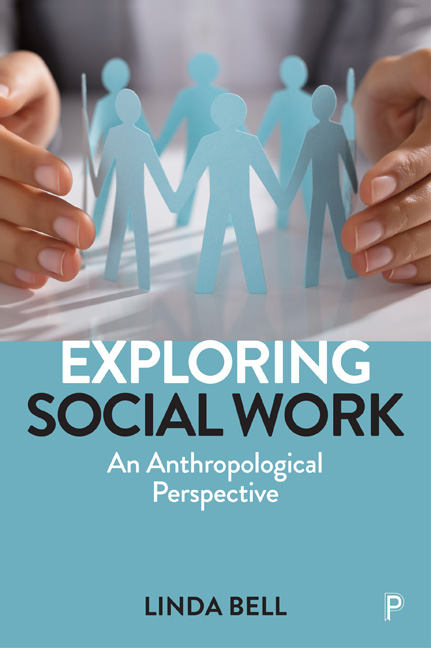Book contents
- Frontmatter
- Dedication
- Contents
- Acknowledgements
- Preface
- 1 Introducing Social Work: Who are Social Workers? Why do we Need Them?
- 2 Getting Involved: An Anthropological and Auto-Ethnographic Journey
- 3 Time and Change: UK Social Work and Comparative European Welfare Policies Since 1990
- 4 Becoming: Being Admitted, Educated and Trained in Social Work
- 5 Growing: Experiencing Social Work Education and Socialisation
- 6 Identifying
- 7 Valuing and Transgressing
- 8 Relating and Partnering: Social Workers, Clients/Service users and other Professionals
- 9 Knowing and Evidencing: Building a Research Base, Mapping and Modelling
- 10 Organising: Influences of the state, Organisations and Wider Social Policies
- 11 Symbolising: Cultural Representations in Theory and in Practice
- 12 Changing: The Future – Social Work in Wider Society
- References
- Index
9 - Knowing and Evidencing: Building a Research Base, Mapping and Modelling
Published online by Cambridge University Press: 04 March 2021
- Frontmatter
- Dedication
- Contents
- Acknowledgements
- Preface
- 1 Introducing Social Work: Who are Social Workers? Why do we Need Them?
- 2 Getting Involved: An Anthropological and Auto-Ethnographic Journey
- 3 Time and Change: UK Social Work and Comparative European Welfare Policies Since 1990
- 4 Becoming: Being Admitted, Educated and Trained in Social Work
- 5 Growing: Experiencing Social Work Education and Socialisation
- 6 Identifying
- 7 Valuing and Transgressing
- 8 Relating and Partnering: Social Workers, Clients/Service users and other Professionals
- 9 Knowing and Evidencing: Building a Research Base, Mapping and Modelling
- 10 Organising: Influences of the state, Organisations and Wider Social Policies
- 11 Symbolising: Cultural Representations in Theory and in Practice
- 12 Changing: The Future – Social Work in Wider Society
- References
- Index
Summary
Introduction
As the International Federation of Social Workers (IFSW) definition makes clear, social work is considered to be both a ‘practice-based profession and an academic discipline’, and, as such, it is ‘underpinned by theories of social work, social sciences, humanities and indigenous knowledge’. In Chapter 8, we examined an example project (‘Mothers Apart’) that combined research and a practice intervention. In this chapter, I consider policies and strategies underpinning social work research and evidence-based or evidence-informed practice, as well as considering how social workers say they generate knowledge or evidence and disseminate it to others; the dissemination of research is principally via publications such as journals, and through conferences. Later, in Chapter 10, we look at how social workers and their close academic colleagues have organised some of these kinds of knowledgeand research-based activities.
Returning to Barth's (1975: 255) anthropological work that I cited earlier, we should note his comment that the knowledge corpus that he theorised in Papua New Guinea ‘will only persist to the extent that its parts are frequently re-created as messages and thereby transmitted’. This process is applicable in a tradition fully based on oral language forms, but there is a case to be made that the point about the re-creation of messages still applies in societies that are more dependent on literary/written forms of knowledge. Anyone who has ever participated in a conference (and has been involved in making last-minute amendments to their presentation) will know that there are often subtle or not-so-subtle differences between versions of their written and orally presented research; you will also appreciate what the potential impacts of these re-creation processes are for the dissemination of the work.
We have already seen that not all social workers think alike, despite affirmations that they have shared values and professional commitments; thus, there are many relevant but different paradigms and theoretical underpinnings to social work, whether as a practice-based or an academic discipline. Subsequently, and particularly in Chapter 5, we looked in more detail at some of those different theoretical ideas, which strike the outsider as a complex guide to ‘doing’ social work in particular ways and different contexts; these include influential strands such as systemic, psychodynamic, relationship-based or radical approaches.
- Type
- Chapter
- Information
- Exploring Social WorkAn Anthropological Perspective, pp. 121 - 138Publisher: Bristol University PressPrint publication year: 2020

